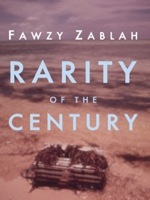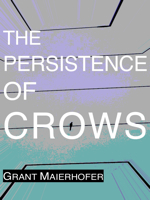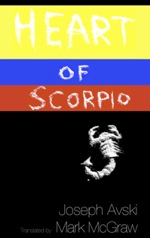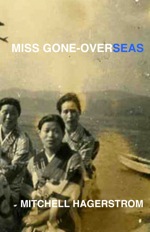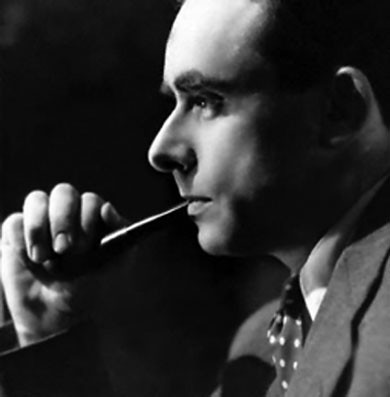 The opening scene of The Wages of Fear (1953) is of four cockroaches tied together on a string, toyed with by a naked, destitute child in the backwaters of a nameless Latin American country. As an ice cream cart is pushed by, the child’s attention is momentarily distracted and he stares longingly at it. When he turns back around, a vulture is sitting where the insects once were – it has taken his insects.
The opening scene of The Wages of Fear (1953) is of four cockroaches tied together on a string, toyed with by a naked, destitute child in the backwaters of a nameless Latin American country. As an ice cream cart is pushed by, the child’s attention is momentarily distracted and he stares longingly at it. When he turns back around, a vulture is sitting where the insects once were – it has taken his insects.
As the rest of the movie plays out, we see that this is not only an apt metaphor for the situation of the four main characters, but also provides a hint to the nihilistic views that the director, Henri-Georges Clouzot, might have held. This scene, combined with a few others, subtly suggest Clouzot’s reluctance in subscribing to a meaningful world in which there is a greater purpose to existence.
This view is not readily apparent. The film itself is a very well crafted, almost genre, suspense thriller. In order to put out an oil well fire, the Southern Oil Company in a Latin American town needs to deliver two truckloads of nitroglycerin 300 miles over rough terrain, where every little bump could cause a sudden explosion. It lures four unemployed vagabonds in this town with the promise of $2,000 to drive the two trucks.
With this premise, the first 55 minutes out of 147 are used to introduce the characters and their situations. The rest deal with the unrelentingly nerve-wracking journey across the badlands. Given that the majority of the time is spent in this section, and given how well it’s done, it’s no surprise that one sees only a rousing action picture.
However, just by paying attention to the character development in the first part, you will first notice an overwhelming amorality prevalent throughout the film that makes it more difficult to attribute meaning to events that occur. This movie doesn’t have the simplicity of the usual Manichean dualism. The main four characters that the film follows, hence turns into protagonists, are Mario, Jo, Luigi, and Bimba. Because they are the central focus of the journey, we yearn for them to succeed. And for good reason – they are very likable fellows, affable personalities, loyal to each other, and have hopeful dreams of one day escaping the hellhole they live in.
But they aren’t completely good. We are constantly reminded of the greed that drives all of them in this journey – the desire to win the 2,000 dollars at the other end, and not a well-meaning effort to put out the oil well fire.
Jo is a coward masquerading as a tough guy who, as is suggested to us in the film, kills one of the initial drivers chosen for the journey so that he could replace him and get a shot at the $2,000. Mario turns out to be an surly schmuck with a chauvinistic attitude. In an early scene, Mario puts his hand out to Linda, the barmaid who is constantly on all fours mopping the floor, and she obediently crawls up to it, nuzzles it, and gazes lovingly at its owner. He pets her affectionately, yet condescendingly. Linda is in love with Mario, but both him and others ignore her, use her, and degrade her. Often, he’ll randomly toss her his shirt to mend, without giving thanks. At one point, she comes up for a kiss, and he pushes her away, saying that he doesn’t want to dirty his shirt (which was already soiled). If you ignore the fact that the characters are driven by greed, the only characters that might seem virtuous in this film are Luigi and Bimba, but we’ll get to these two later.
Less obvious but still noticeable is the cultural ignorance and obvious racism displayed by all. These racist bits are usually thrown in passing at the ends of scenes or introductions to others. At the very beginning of the film, as the camera pans over the dilapidated village and people bathing in a stream, we hear off screen, as part of the background sounds, a foreigner telling a black-skinned native that she needs some bleach on her skin. In yet another scene we see Mario beginning a conversation by asking Jo what he thinks of the natives here. He answers mockingly that they seem to have fallen straight out of the coco tree. These statements aren’t emphasized; they act more as primer dialogue to important expository dialogue. The revealing snippets are few and far between in this film, but they stick out whenever they’re said, as a reminder of who these people are.
The second half of The Wages of Fear seems to establish nature as the antagonist. As we follow the four characters in their trucks and sympathize with their plight, we come to side with them and want to see them succeed against inhospitable nature.
In the end, there is a celebratory feel as Mario completes the journey, and we join the festivities with him and the oil company, thus also associating the oil company with the protagonists. But that is a bit problematic. If anything, nature seems more the victim of invasive, pillaging humans, ravaged for its oil and resources and left barren and scorched, as the final shots of the fiery fields attest.
Clouzot takes plenty of swipes at the stereotypical American oil company, criticizing its imperialistic policies and irresponsibility. Early on, we see the poverty stricken natives, displaced from the land, hired to do dangerous jobs for minimal pay for a company that has enclosed itself within its own gated community and neglects the society around it. In a shot of the oil well fire, “savages” look on in sadness at the state of their land, until they are chased away by security.
Clouzot also makes sure top portray the oil company as completely irresponsible even towards its own employees. After the accident, the boss, O’Brien, with the distinctly American twang in his voice, tells his people to blame it all on the victims (most of them natives) because “they’re too poor to feel it” and tells his people to bribe the approaching safety inspectors, “Get them real drunk”.
Despite all this, in the end, it is the company that triumphs. They end up getting the nitroglycerin they need to put out the fire. And they also end up not having to pay the drivers because, as we will see, they all perish. However, because the focus is on Mario’s tragedy in the end, the audience will not notice this exploitative behavior.
The oil company triumphs, but there is no outrage at it, as if we were sanctioning its actions. It is this kind of subtle absurdity of showing the perseverance of the undeserving that hints at the director’s seemingly jaded views of the world, that there is no greater power or purpose that rewards the good and punishes the evil. There is no justice in this world, and all that matters is the basic struggle to survive.
As Mario states at one point while he beats up Jo in order to force him to follow, “It may be wrong, but I am stronger”, which also echoes over the actions of the company towards the poor Latin American town. This is the one time that such a statement isn’t casually tossed out, but is intently focused on: a low angle shot of Mario looking victorious, standing over a cowering Jo.
The absurdness of life is further illustrated when the only people coming close to being virtuous die. Luigi and Bimba exit the movie without much fanfare. Their death comes abruptly – the scene is of Mario and Jo conversing when we hear the explosion – and it suggests that whatever it is that they achieve, ultimately, it does not matter because they could die at any time.
In the film, they may have been honorable men, but this does not mean that they will necessarily be rewarded. Similarly, they may have been one of the main characters in the film, but that does not ensure their survival or even a noble, dignified death in which the film pays respect by giving it screen time.

Towards the end, there are more instances of dialogue and shots that insinuate the desperate hopelessness of it all. In one of the final challenges in their trek, Mario and Jo must navigate through a deep pool of oil, in which they will get stuck if they stop midway through. Jo walks in front, ensuring that the path is clear and navigating for Mario, but he trips and falls. Instead of stopping, Mario drives ahead, not wanting to mire himself, regardless of whether he runs over Jo. Wanting to avoid possible death, Mario’s survival instinct, added with the monetary incentive, drives his ambition, and it is his own strong will, reminiscent of Nietzsche’s Übermensch, that prevails over all, including friendship or even compassion.
It is this singular will that sets him above the others and eventually leads to his success. Jo’s leg is crushed by that incident and he later on dies from this injury as they almost reach the site of the fire, but his final words are the most revealing ones on Clouzot’s views.
As he nears death, he begins to remember a Tabac shop from his days in Paris. He mentions a fence at the back which he was never able to see past, and asks Mario what was there, since he had been there before. Mario replies, “There was nothing there, but an empty lot”.
Jo drifts back into unconsciousness but suddenly seems to realize something as his eyes open wide, for the final time, and he hoarsely, deliriously exudes, “I remember now… there was nothing!” The shot is a close-up of his face: eyes filled with fear, drained of hope, face grimy with defeat, its lines twisted in anguish. Then he dies.
There is a final hope in the end though, as Mario happily accepts his reward and gaily drives back to town, the entire sequence scored to Strauss’s Blue Danube and intercut with scenes of happiness in the bar after everyone hears of Mario’s success. However, what could have been a typical happy ending that would have negated Clouzot’s previous intimations ends up being the ironic stroke that adds the final exclamation mark.
Careless with happiness, Mario begins swerving playfully, but he loses control at a sharp turn and drives off the cliff. We realize the absurdness of it all – the hero dying in the end, after his glorious success and all his hard work – and it doesn’t conform to our view of a world in which the good, the victorious survive over all adversity or are rewarded in some way. But again, this is Clouzot’s way of showing us his view of a world without any meaning or purpose, in which things happen irrationally.
Without a greater purpose, life thus becomes a Darwinian struggle for survival. We see this in Southern Oil Company’s vicious yet successful exploitation of the poverty stricken, oil-rich Latin American town, and we see this in the competition to earn the $2,000. We see that Mario’s will to survive is stronger than the others’, which allows him to reach the blazing oil well. And all of this takes us back once again to the metaphor at the beginning, of the four cockroaches toyed with by the child, and then stolen away by the more vigilant vulture. Survival of the fittest.



